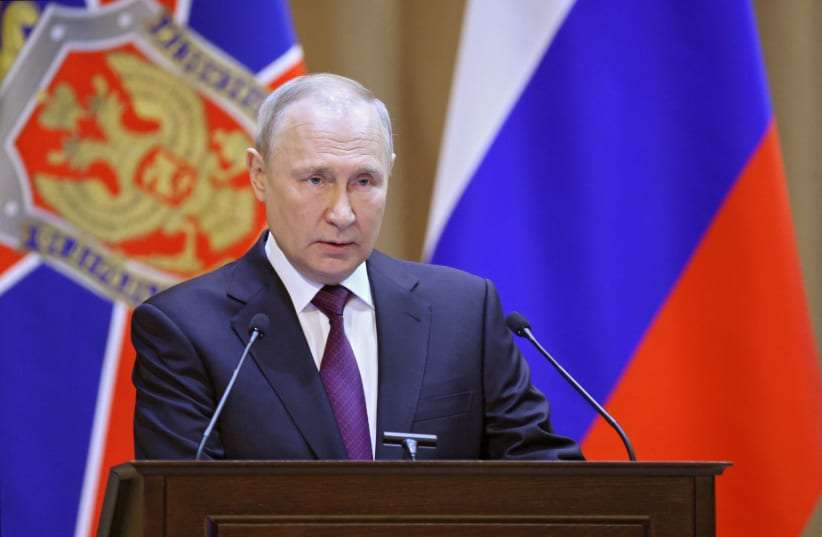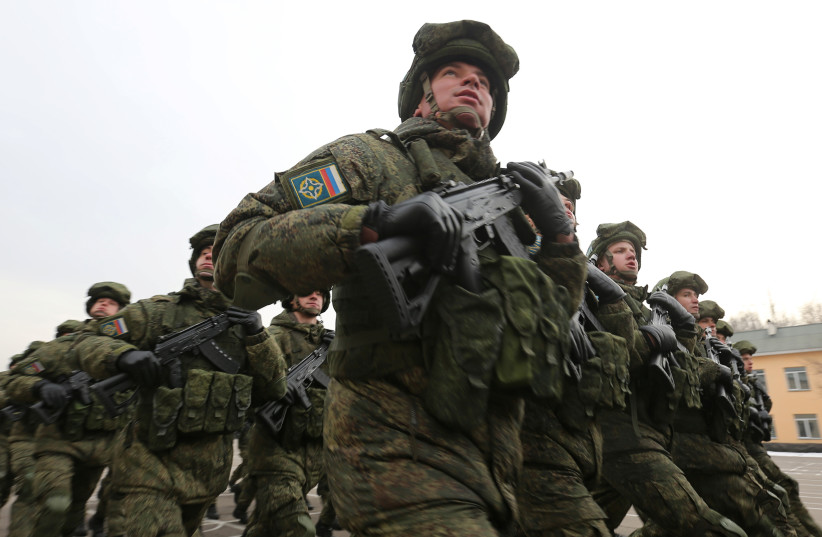Russian President Vladimir Putin signed a bill that would criminalize discrediting any participants involved in the invasion of Ukraine into law on Saturday, Russian state-controlled TASS said.
The law previously criminalized criticism of the Russian armed forces. However, the new legislation would punish any public actions against members of the Special Military Operation units (SVO) including volunteer units.
The maximum penalty for criticizing the military forces has also been increased from five years to seven years. Prison sentencing will be pursued by the state if the ‘violator’ has committed similar actions during a twelve-month span.
Other military law changes
Public dissemination of ‘deliberately false information’ can result in prison sentencing of up to 15 years.
Additionally, the law issues criminal liability for illegally entering a state facility. The punishment for this ranges from a fine of 500,000 Russian rubles (approximately NIS 23,816 or $6,495), restriction of liberties, or imprisonment for up to two years.
Russia to expand range for military drafts
On top of the new law, Russia is expected to change the age of its military draft, which is enforced bi-annually.
The current draft age is from 18-27 years old and will likely be changed to 21-30 years old, according to the United Kingdom's defense ministry. The change would mean that students can no longer use further education as a reason to avoid serving in the military
Latest Defence Intelligence update on the situation in Ukraine - 18 March 2023.Find out more about Defence Intelligence's use of language: https://t.co/b1caNLrk5z #StandWithUkraine pic.twitter.com/UEtuzv53WD
— Ministry of Defence (@DefenceHQ) March 18, 2023
The UK stated that it believes the motivation behind this change is to increase the number of professional soldiers.
The ministry also claims that hundreds of young men have been made to serve out of administrative failings or due to outright coercion.

